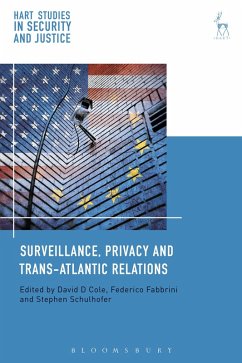Recent revelations, by Edward Snowden and others, of the vast network of government spying enabled by modern technology have raised major concerns both in the European Union and the United States on how to protect privacy in the face of increasing governmental surveillance.
This book brings together some of the leading experts in the fields of constitutional law, criminal law and human rights from the US and the EU to examine the protection of privacy in the digital era, as well as the challenges that counter-terrorism cooperation between governments pose to human rights. It examines the state of privacy protections on both sides of the Atlantic, the best mechanisms for preserving privacy, and whether the EU and the US should develop joint transnational mechanisms to protect privacy on a reciprocal basis.
As technology enables governments to know more and more about their citizens, and about the citizens of other nations, this volume offers critical perspectives on how best to respond to one of the most challenging developments of the twenty-first century.
This book brings together some of the leading experts in the fields of constitutional law, criminal law and human rights from the US and the EU to examine the protection of privacy in the digital era, as well as the challenges that counter-terrorism cooperation between governments pose to human rights. It examines the state of privacy protections on both sides of the Atlantic, the best mechanisms for preserving privacy, and whether the EU and the US should develop joint transnational mechanisms to protect privacy on a reciprocal basis.
As technology enables governments to know more and more about their citizens, and about the citizens of other nations, this volume offers critical perspectives on how best to respond to one of the most challenging developments of the twenty-first century.









